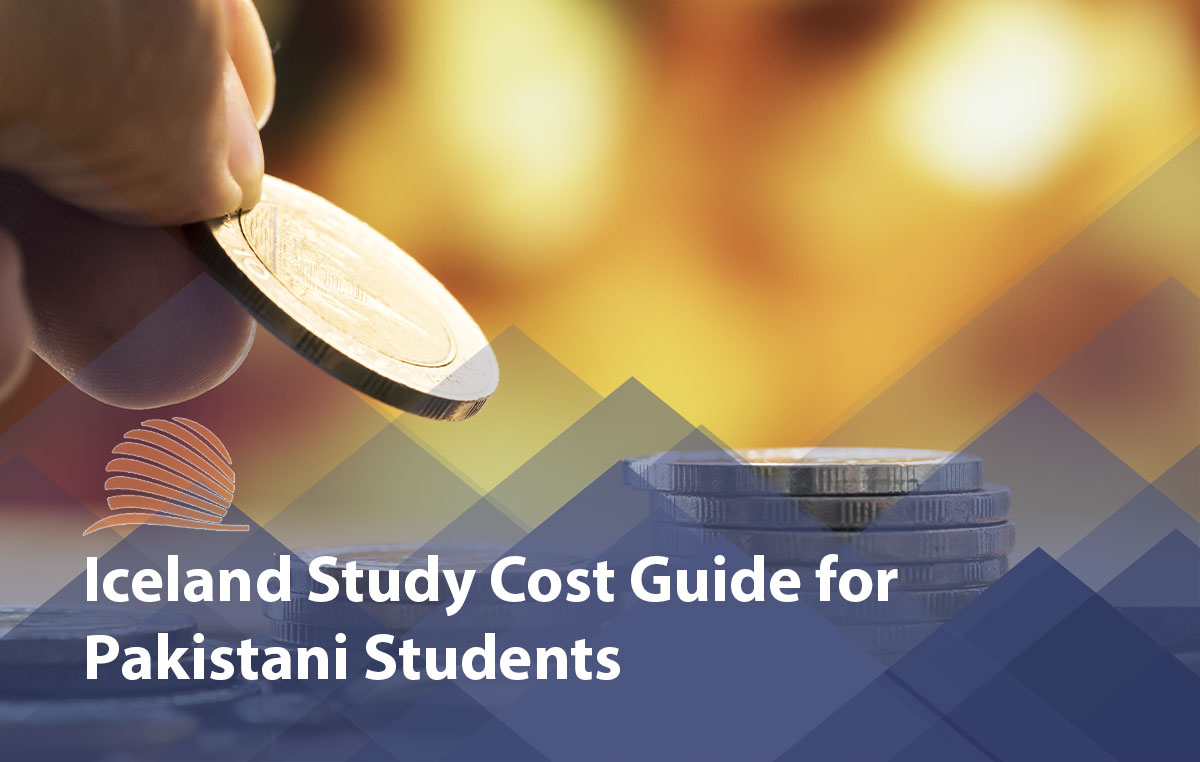Why Pakistani Students Choose Iceland As Study Destination

Study abroad expert advice
Don't waste time! just fill the form to get help.
Cost of Studying in Iceland for Pakistani Students
One of the most important factors for Pakistani students planning to study abroad is the overall cost of education and living. While destinations like the USA, UK, and Australia are popular, they are also very expensive. Iceland, on the other hand, offers a more affordable option without compromising on the quality of education.
Although tuition fees in Iceland are relatively low compared to other Western countries, students must still consider expenses such as accommodation, food, transportation, and health insurance. This article provides a complete breakdown of the costs Pakistani students can expect when studying in Iceland.
Tuition Fees in Iceland
Iceland has both public and private universities, and tuition costs vary depending on the institution and program.
- Public Universities – Iceland does not charge traditional tuition fees at public universities. Instead, students pay a registration fee ranging from EUR 100 to EUR 600 per year.
- Private Universities – These institutions charge tuition fees, usually between EUR 3,000 and EUR 6,000 per year.
For Pakistani students, this makes Iceland one of the most affordable study destinations in Europe, especially for programs taught in English at the postgraduate level.
Average Living Costs in Iceland
While tuition is affordable, the living expenses in Iceland are higher than in many other countries due to its location and economic standards. Students should budget carefully to manage their stay.
Monthly Living Expenses (Average for a Student)
Expense Category | Average Monthly Cost (EUR) | Equivalent in PKR (approx.) |
Accommodation (shared flat/student housing) | 400 – 700 | 124,000 – 217,000 |
Food & Groceries | 250 – 350 | 77,000 – 108,000 |
Transportation (bus pass) | 40 – 60 | 12,000 – 18,500 |
Utilities & Internet | 70 – 100 | 21,500 – 31,000 |
Health Insurance | 50 – 70 | 15,500 – 22,000 |
Personal & Miscellaneous | 100 – 200 | 31,000 – 62,000 |
Total Estimated Cost | 900 – 1,400 | 280,000 – 435,000 |
(Conversion rate: 1 EUR ˜ 310 PKR, subject to fluctuation)
Scholarships and Financial Aid
Pakistani students can reduce their expenses by applying for scholarships and financial aid programs. Some options include:
- Icelandic Government Scholarships – Limited scholarships for international students.
- University-Specific Scholarships – Some institutions offer tuition waivers or stipends for outstanding students.
- Erasmus+ Exchange Programs – Funded opportunities for students to study part of their degree in another European country.
Applying early and maintaining a strong academic profile increases the chances of securing funding.
Working Part-Time in Iceland
To manage costs, Pakistani students are allowed to work while studying in Iceland.
- Work Hours – Up to 15–20 hours per week during semesters, and full-time during vacations.
- Average Salary – EUR 10–15 per hour (˜ PKR 3,000–4,600).
- Common Jobs – Restaurants, cafes, customer service, delivery, and seasonal work.
This part-time income can cover a significant portion of monthly living expenses.
Additional Costs Pakistani Students Should Consider
- Flight Tickets – A one-way ticket from Pakistan to Iceland usually costs between EUR 600 – 900.
- Visa & Residence Permit Fees – Around EUR 120 – 150.
- Books & Study Materials – Approximately EUR 50 – 100 per semester (many resources are available online).
- Leisure & Travel – Exploring Iceland and Schengen countries may add extra expenses.
Money-Saving Tips for Pakistani Students in Iceland
- Choose student housing over private apartments for lower rent.
- Cook at home instead of eating out—restaurants in Iceland are expensive.
- Use student discounts for transportation, entertainment, and cultural activities.
- Share accommodation with fellow students to cut costs.
- Apply for scholarships and part-time jobs
Conclusion
For Pakistani students, Iceland offers a unique balance: affordable tuition fees with access to globally recognized universities, but relatively higher living expenses due to the country’s economic standards. By planning a clear financial strategy, working part-time, and applying for scholarships, students can make their dream of studying in Iceland affordable and achievable.
Iceland may not be the cheapest destination overall, but the combination of quality education, research opportunities, and safe living conditions makes it a valuable investment in one’s future.









.jpg)
.jpg)

.jpg)
.jpg)
